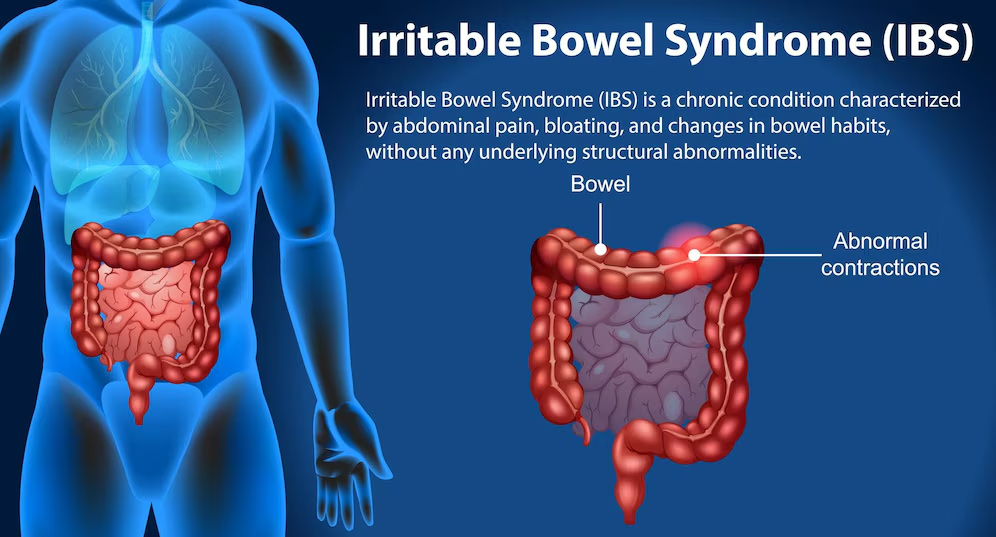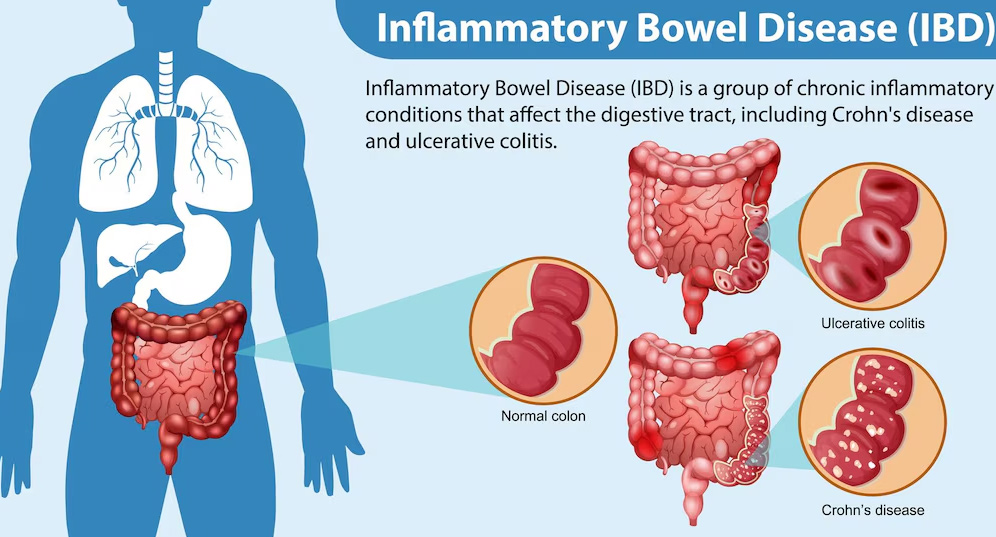
Digestive health issues like Irritable Bowel Syndrome (IBS) and Inflammatory Bowel Disease (IBD) are often misunderstood or used interchangeably. However, these are distinct conditions with unique causes, symptoms, and treatments. IBS is a functional disorder affecting the digestive system's operation, while IBD is a chronic inflammatory condition that can damage the gastrointestinal tract. Understanding these distinctions is essential for effective management and improved quality of life.
Table of Content:-
To understand the differences between the two conditions, OnlyMyHealth team interacted with Dr Ronak Tate, Consultant-Gastroenterology, Fortis Hiranandani Hospital, Vashi, Navi Mumbai.
Irritable Bowel Syndrome (IBS)

IBS is a functional gastrointestinal disorder that affects the digestive system. Dr Tate explains, “Irritable bowel syndrome (IBS) is one of the most common digestive disorders that affects the gastrointestinal tract and the digestive system. It can affect one’s quality of life because one can develop IBS at any point in their life. Thus, making it crucial to understand the digestive system and its works.”
The symptoms of IBS include bloating, gas, cramps, abdominal pain, diarrhoea, constipation, or a combination of both. Other indicators are a sensation of incomplete evacuation, mucus in the stool, and changes in bowel movement frequency or appearance. While IBS symptoms can vary widely from person to person, it is important to seek medical attention for alarming signs like weight loss, rectal bleeding, iron deficiency anaemia, or unexplained vomiting.
IBS does not cause inflammation or permanent damage to the intestines. It is primarily managed through simple lifestyle changes, stress management, and dietary adjustments. Dr Tate advises, “Simple lifestyle changes, stress management, and diet, in conjunction with professional advice, can help treat IBS. However, treatment may differ depending on the symptoms and triggers that lead to IBS.”
Also read: How Plant-Based Diets Can Help Alleviate Gastrointestinal Symptoms In IBS Patients
Inflammatory Bowel Disease (IBD)

Unlike IBS, IBD is a chronic, immune-mediated inflammatory disorder of the intestines. It encompasses two main conditions: ulcerative colitis (UC) and Crohn’s disease (CD). According to Dr Tate, “Inflammatory bowel disease (IBD) is a chronic, relapsing, and remittent intestinal inflammatory disorder. Causes include intestinal immune disruption, genetic transmission, gut microbiota disturbance, poor diet, infection, psychological stress, sleep disorders, smoking, and early life exposure to antibiotics.”
The symptoms of IBD depend on the location and severity of inflammation but commonly include diarrhoea, fatigue, abdominal pain, cramping, blood in the stool, reduced appetite, and unintended weight loss. Dr Tate emphasises that, while IBD is typically not fatal, it is a serious condition that can lead to life-threatening complications in severe cases.
Patients with IBD often experience cycles of active illness followed by remission periods. Effective management involves a combination of lifestyle changes, a balanced diet, and medication. Treatments may include anti-inflammatory drugs, immunosuppressants, and, in severe cases, immunomodulators or surgery.
Key Differences Between IBS and IBD

Cause: IBS is functional and often triggered by stress, diet, or gut sensitivity, while IBD is caused by immune system dysfunction, genetics, and environmental factors.
Symptoms: IBS primarily involves discomfort without inflammation. IBD, however, causes inflammation and can result in visible damage to the gastrointestinal tract.
Treatment: IBS treatment focuses on symptom management through lifestyle changes, while IBD often requires medication to reduce inflammation or control the immune system.
The Importance of Early Diagnosis
Misdiagnosis or delayed diagnosis can worsen symptoms or lead to complications. Dr Tate stresses, “While the symptoms, severity, and duration of IBS vary from person to person, one should consult a doctor immediately if they experience concerning symptoms, as it could also be a sign of colon cancer.”
Both IBS and IBD demand proactive management tailored to the individual. If you are experiencing persistent digestive symptoms, consulting a healthcare professional can help determine the root cause and guide appropriate treatment.
Also watch this video
Read Next
Choline Deficiency - A Hidden Cause Of Restlessness And Anxiety: Here’s How To Manage The Condition
How we keep this article up to date:
We work with experts and keep a close eye on the latest in health and wellness. Whenever there is a new research or helpful information, we update our articles with accurate and useful advice.
Current Version